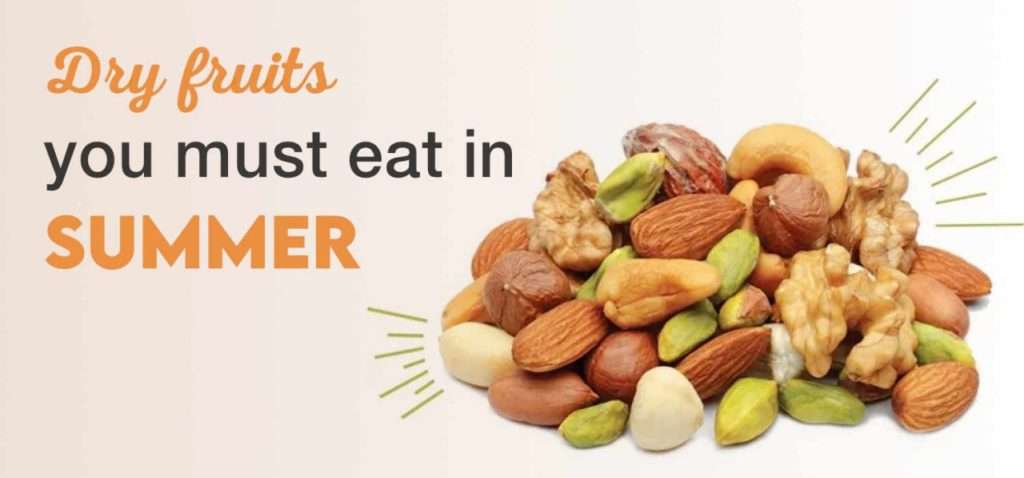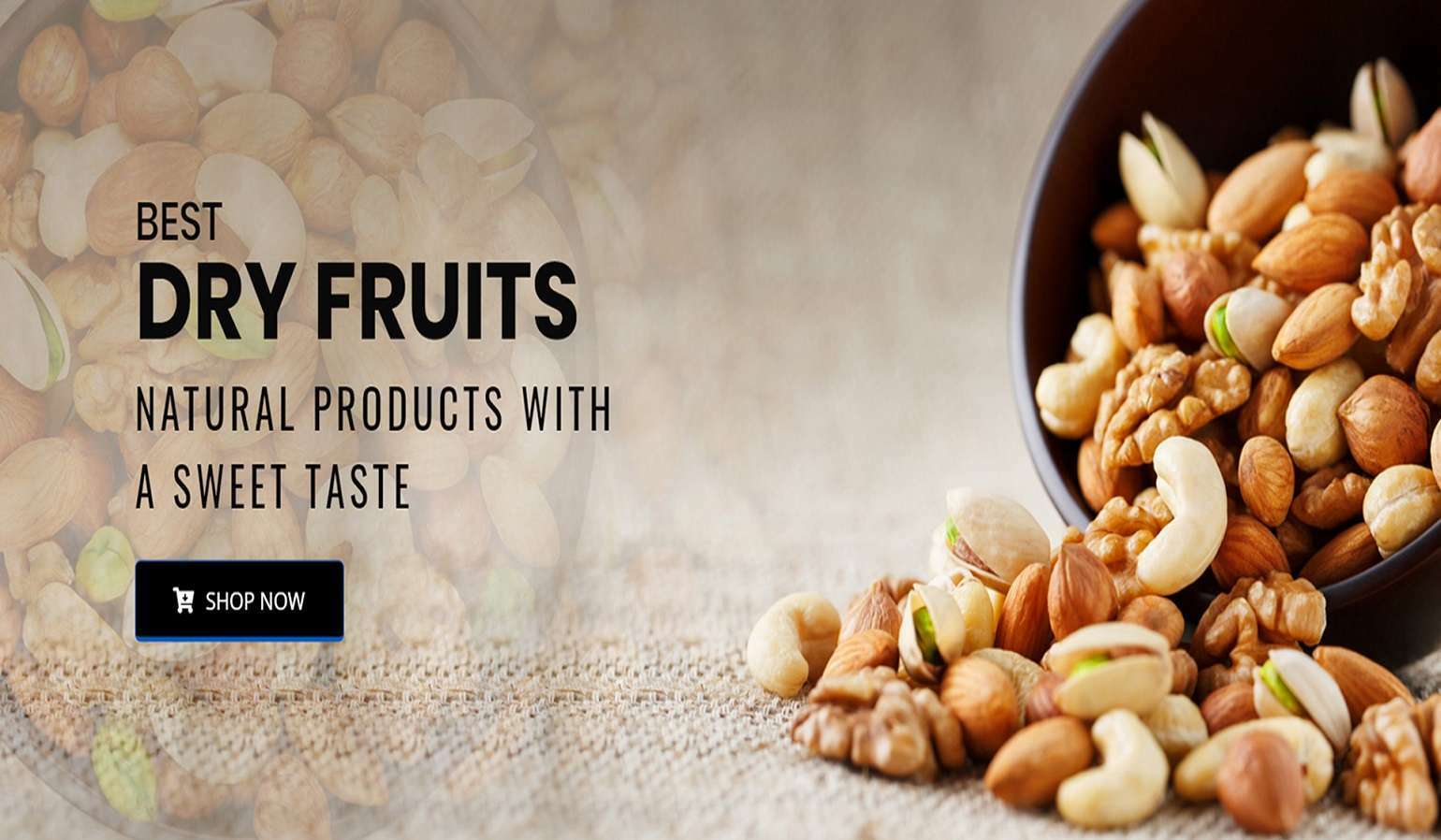Introduction
Dry fruits have been a popular snack for generations. They are an excellent source of vitamins and minerals and provide several health benefits. Incorporating dry fruits into your daily diet can help you maintain a healthy lifestyle.
Overview of the benefits of dry fruits
Dry fruits are nutrient-dense foods that provide essential vitamins and minerals. They are also rich in fiber, antioxidants, and healthy fats. Here are some reasons why dry fruits are good for health:
- Lower the risk of heart disease
- Improved digestion
- Boosted immunity
- Prevent chronic diseases
- Manage weight
What are Dry Fruits?
Dry fruits are fruits that have been dried to remove their water content. This helps to preserve their nutrients and shelf life.
Definition of dry fruits
Dry fruits are fruits that have been dried in the sun or using other methods.
Types of dry fruits
Some popular types of dry fruits include almonds, cashews, walnuts, and pistachios.
Differences between fresh and dry fruits
Fresh fruits have a high water content, and dry fruits have had the water removed. Dry fruits provide concentrated sources of nutrients and are easier to store and transport.
Nutritional Value of Dry Fruits
Dry fruits are packed with nutrients that are essential for good health.

High in fiber
Dry fruits are rich in fiber, which helps to improve digestion, regulate blood sugar, and prevent heart disease.
Rich in vitamins and minerals
Dry fruits are a good source of vitamins and minerals, including vitamin E, iron, potassium, and magnesium.
Good source of antioxidants
Dry fruits are packed with antioxidants that help to prevent cell damage and lower the risk of chronic diseases.
Health Benefits of Dry Fruits
Dry fruits provide several health benefits that can help to maintain a healthy lifestyle.
Lower risk of heart disease
Dry fruits are rich in healthy fats that can help to lower cholesterol levels and reduce the risk of heart disease.
Improved digestion
The high fiber content in dry fruits helps to improve digestion and prevent constipation.
Boosted immunity
Dry fruits contain several essential vitamins and minerals that help to strengthen the immune system and prevent infections.
Prevents chronic diseases
The antioxidants and other nutrients in dry fruits help to reduce the risk of chronic diseases, including cancer, diabetes, and heart disease.
Dry Fruits for Weight Management
Consuming dry fruits in moderation can help manage weight.
Low in calories
Dry fruits are low in calories and can make a great snack when trying to lose weight.
High in fiber
Fiber helps to control hunger pangs and avoid overeating.
Control hunger pangs
Dry fruits can be a great snack to control hunger pangs and prevent overeating.
Avoid overeating
Dry fruits contain healthy fats that help to keep you full and avoid overeating.
Incorporating Dry Fruits into Your Diet
Dry fruits can be incorporated into your daily diet in various ways.
As a snack
Dry fruits make a great snack and can be easily carried around.
In breakfast cereals
Dry fruits can be added to breakfast cereals for added nutrients and flavor.
In salads and smoothies
Dry fruits can be added to salads and smoothies for added texture and nutrition.
As a dessert topping
Dry fruits make a great topping for desserts and can replace unhealthy toppings like whipped cream.
Popular Dry Fruits and Their Benefits
Different types of dry fruits have unique health benefits. Here are a few examples:
Almonds
Contain vitamin E and healthy fats that can help to lower cholesterol levels.
Cashews
Rich in magnesium, which is essential for strong bones and healthy muscles.
Walnuts
Contain Omega-3 fatty acids that improve brain function and lower inflammation.
Pistachios
Low in calories and high in fiber, which makes it a great snack for weight loss.
Dry Fruits for Snacking
Dry fruit mix can be a great snack option.
Preparing dry fruit mix
Mix different types of dry fruits for a tasty and nutritious snack.
Portion sizes
Eat dry fruits in moderation to avoid overeating and consuming too many calories.
Deciding on frequency
Consume dry fruits in moderation and balance them out with other meals and snacks throughout the day.
Drying Methods for Fruits
Several different methods are used to dry fruits, including:
Sun-drying
Fruits are dried in the sun over several days to remove their water content.
Oven-drying
Fruits are baked in the oven at low temperatures to remove their water.
Dehydrating
Fruits are dried using a dehydrating machine.
Freeze-drying
Fruits are frozen and then dehydrated to remove their water content.
How to Choose the Best Dry Fruits
Choosing the best dry fruits requires understanding which types of fruit are freshest and contain the most nutrients.
Check for freshness
Choose dry fruits that are fresh and not stale or damaged.
Read ingredient labels
Pay attention to the ingredients listed on packages and avoid those that contain added sugars and salt.
Consider packaging
Packages that are vacuum-sealed will help to maintain the freshness of dry fruits.
Dry Fruits for Children
Inculcating healthy eating habits in children can be challenging. Dry fruits can be a great snack option for kids.
Healthy snacking options for kids
Offer kids a mix of different types of dry fruits, which can be more interesting to them.
Importance of inculcating healthy eating habits
Teaching kids how to eat healthy foods at a young age will help them to maintain a healthy lifestyle as adults.
Avoiding added sugars and salt
Avoid giving kids dry fruit mixes that contain added sugars and salt.
Dry Fruits for Pregnant Women
Pregnant women require essential nutrients to maintain their own health and the healthy growth of their child.
Essential nutrients for both mother and child
Dry fruits contain essential nutrients that are important for both mother and child, including iron and vitamins.
Preventing gestational diabetes
Consuming dry fruits can help to prevent gestational diabetes and its related complications.
Reducing the risk of birth defects
Dry fruits provide nutrients that help to reduce the risk of birth defects and premature delivery.
Safety Precautions
Dry fruits can cause allergic reactions in some individuals. It is essential to follow safety precautions when consuming dry fruits.
Potential allergens
Be aware of potential allergens and avoid consuming dry fruits that cause allergic reactions.
Proper storage
Store dry fruits in a cool and dry place to maintain their freshness and prevent spoilage.
Dry Fruits versus Fresh Fruits
Dry fruits provide concentrated sources of nutrients and are easier to store and transport than fresh fruits.
Which have more nutrients
Fresh fruits have a high water content, while dry fruits have concentrated nutrients.
Comparing shelf life
Dry fruits have a longer shelf life than fresh fruits.
Which are more convenient
Dry fruits are more convenient to carry and snack on than fresh fruits.
How Much is Too Much?
Overconsumption of dry fruits can lead to negative consequences. It is essential to be mindful of portion sizes and consult a doctor if necessary.
Overconsumption risks
Eating too many dry fruits can lead to weight gain and other health issues.
Being mindful of portion sizes
It is essential to consume dry fruits in moderation and be mindful of portion sizes.
Consulting a doctor
If you have any underlying health conditions, consult a doctor before consuming dry fruits regularly.
The Importance of Hydration
Water intake is essential when consuming dry fruits.
Dried fruits and water intake
Dry fruits can be dehydrating and require drinking enough water to remain hydrated.
Importance of fluids for digestion
Drinking enough fluids is vital for maintaining good digestion.
Avoiding dehydration
Be sure to drink enough fluids to avoid dehydration when consuming dry fruits.
The Best Time to Snack on Dry Fruits
The timing of snacking on dry fruits can affect their potential health benefits.
Timing for maximum benefits
Snack on dry fruits between meals to avoid overeating and control hunger pangs.
Factors that determine snacking times
Timing for snacking on dry fruits will also depend on individual preference and lifestyle factors.
Balancing with proper meals
Include dry fruits as part of a balanced diet that includes regular meals.
FAQs
What are the healthiest types of dry fruits?
Almonds, cashews, and walnuts are some of the healthiest types of dry fruits.
Are dried fruits as healthy as fresh fruits?
Dried fruits are nutrient-dense, but they have higher sugar content and less water than fresh fruits.
Is it safe to consume dry fruits during pregnancy?
Dry fruits are safe to consume during pregnancy as long as they are eaten in moderation.
Can I eat dry fruits with other food items?
Dry fruits can be eaten with other foods as part of a balanced diet.
How much dry fruit can I eat in a day?
It is recommended to consume no more than 1 to 2 servings of dry fruits per day.
How should I store dry fruits?
Dry fruits should be stored in a cool and dry place to maintain their freshness.
Conclusion
Incorporating dry fruits into your daily diet can help you maintain a healthy lifestyle. Dry fruits provide several essential nutrients and health benefits, including lower risk of heart disease, improved digestion, and boosted immunity. Remember to consume dry fruits in moderation, store them properly, and stay hydrated.


Write a comment
Your email address will not be published. Required fields are marked *